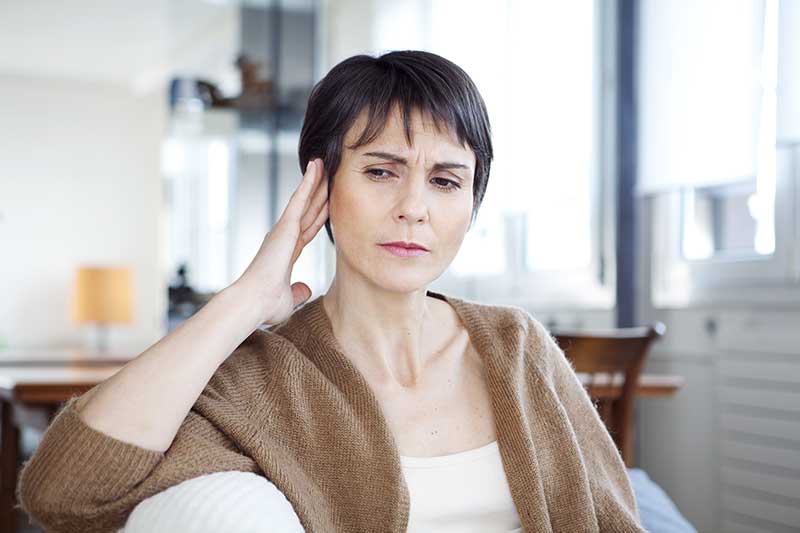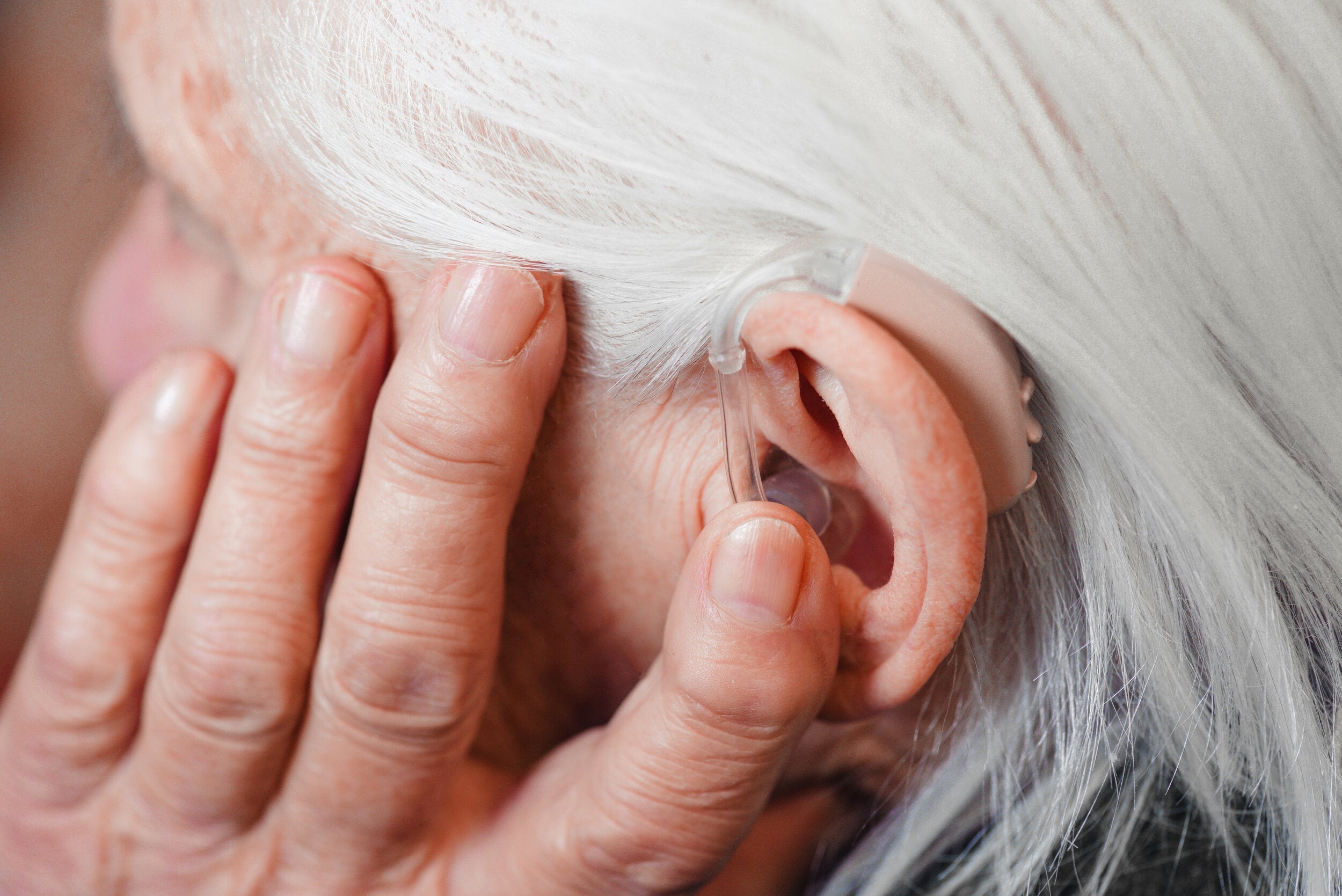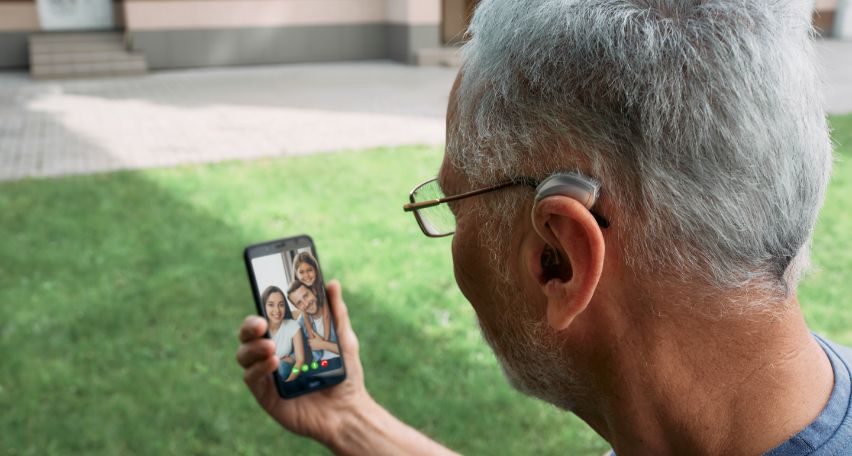静かな午後を過ごしていたら、突然補聴器が甲高いキーキーという音を立てたことはありませんか?ご安心ください、あなただけではありません。長年、様々な方の補聴器のフィッティングと調整に携わってきた私は、「なぜ補聴器はキーキー鳴るのですか?」「なぜ補聴器をつけたばかりなのにキーキー鳴るのですか?」といった質問をよく耳にします。
これらの小さなキーキー音(専門用語では「フィードバック」と呼ばれます)は、迷惑で、恥ずかしく、時には本当に困惑させられることもあります。でもご心配なく。今日は、フィードバック音が起こる理由、原因、そして対処法について解説します。さらに、実際の例も紹介するので、どのような症状が出るのかを正確に理解できるでしょう。
詳しく見ていく前に、デバイスのアップグレードを検討している方、あるいはより良い選択肢に興味がある方は、 Cearvol補聴器を検討してみることをお勧めします。Cearvolは、不要なキーキー音を大幅に軽減するスマートフィードバック制御技術を搭載しており、多くのユーザーに高く評価されています。
では、始めましょう。
以下もご興味があるかもしれません:
- 耳の中でパチパチという音がするのはなぜ?その答えはあなたを驚かせるかもしれません!
- 医師が警告:綿棒の使用はやめましょう!耳垢を安全に除去する方法
- 【実証済み】2025年も補聴器ドームを耳から外さないためのヒント
パート 1: 補聴器はなぜキーキー音を発するのか?
「なぜ補聴器はキーキー音を発するのか?」または「なぜ私の補聴器はキーキー音を発するのか?」と疑問に思ったことがあるなら、あなたはすでに補聴器についてより深く理解するための正しい道を歩んでいることになります。
簡単に言うと、補聴器がキーキー音を出すのは、スピーカーから増幅された音がマイクに戻り、再び増幅されるというフィードバックループが発生するためです。マイクをスピーカーに近づけすぎると、あの不快なキーキーというノイズが聞こえるのと同じようなものです。

それでは、実際のシナリオでもう少し詳しく説明してみましょう。
私の長年の患者の一人、サラを想像してみてください。彼女は孫を抱きしめるたびに、補聴器が大きなキーキー音を発していました。「ハグのような優しい瞬間に補聴器がキーキー音を発するのはなぜ?」と彼女は不思議に思っていました。実は、誰かが耳に近づくと、あるいは自分の手を耳に当てただけでも、音が補聴器のマイクに反射してしまうのです。そのため、補聴器に手を近づけるとキーキー音を発してしまうのです。
時にはキーキーという音が一瞬で終わることもありますが、時にはマイクが反射音を拾わなくなるまで鳴り続けることもあります。
ちなみに、フィードバックの種類によって音は異なります。高音で鋭いものもあれば、低音で柔らかいものもあります。しかし、根本的な原因は通常同じで、増幅された音がマイクに逆流することです。
この現象についてさらに詳しく知りたい方は、補聴器のフィードバックに関する記事をご覧ください。興味があればぜひお読みください。
次のセクションに進む前に、要約しましょう。
- 補聴器がキーキー音を発するのはなぜですか? → 増幅された音がマイクに漏れ戻り、フィードバック ループが発生します。
- それはいつ起こりますか? → 補聴器に何かが近づいたとき(手、抱擁、枕など)、または補聴器が適切に装着されていないとき。
さて、補聴器がキーキー音を発する理由がわかったので、まずはその原因となる一般的な原因について話しましょう。
パート 2: 補聴器がキーキー音を発する原因は何ですか?
問題解決の鍵は、根本的な原因を理解することです。患者さんから「補聴器がキーキーと鳴るのはなぜですか?」と尋ねられた場合、私は通常、いくつかの主な原因を説明します。もう少し詳しく説明しましょう。
でも、まずはちょっとした注意点があります。補聴器を毎日使っているなら、掃除やメンテナンスといった簡単な習慣が非常に重要です。ちなみに、耳垢(意外とよくある原因です!)の対処法がわからない方は、 耳垢を安全に掃除する方法を解説したこちらのガイドをご覧ください。
さて、ここにいつもの容疑者たちがいます:
1. フィット感が悪い
補聴器が耳にぴったりとフィットしていないと、音が外耳道に直接入らず、補聴器の周りから漏れてしまうことがあります。この緩いフィット感は、音がマイクに跳ね返るのに最適な経路を作り出し、あのキーキーという音を引き起こします。
以前、ポールという男性が来院し、「顎を動かすと補聴器がキーキーと鳴るのはなぜですか?」と訴えたことがありました。咀嚼したり話したりすると補聴器が少し動いて、耳の穴の密閉性が損なわれていたことが原因でした。簡単な調整で、問題はすぐに解決しました。
2. 耳垢の蓄積
もう一つの隠れた原因は?耳垢です。耳垢は音を遮り、音を後方に逃がしてマイクに再び入ってしまうことがあります。場合によっては、定期的な耳掃除をするだけでキーキー音の問題を大幅に軽減できることがあります。これを見落としている人は驚くほど多いのです!

最近耳のチェックをしていない場合は、今がチェックするタイミングかもしれません。あるいは、 耳垢を除去するための安全な方法について読んでみるのもよいでしょう。
3. デバイスの設定が高すぎる
補聴器の音量をかなり上げたい方もいらっしゃいます。全てをはっきりと聞きたいのは分かりますが、音量を上げすぎるとフィードバックの可能性が高くなります。設定を微調整するか、専門家に調整してもらうと、この問題はすぐに解決することが多いです。
4. 物理的な障害または反射
帽子、スカーフ、メガネ、手など、補聴器の近くにあるものはすべて、マイクに音を反射する可能性があります。そのため、多くのユーザーが「補聴器に手を近づけるとキーキーという音がする」と感じています。これは典型的な反射現象です。
これまでの簡単な要約:
- ゆるい?キーッ。
- 耳垢が溜まってる?キーキー鳴る。
- 音量が大きすぎますか?キーキー音がします。
- 耳の近くに何かある?ああ、またキーキー鳴る。
したがって、「補聴器がキーキー音を立てるのはなぜか」と疑問に思っている場合は、おそらくこれらのいずれかの理由であると考えられます。

Diamond X1 - Bluetooth搭載の最高の補聴器
新人価格
249.99ドル 309.99ドル
- ✔ クリアな聴覚を実現するアダプティブサウンド モード。
- ✔ 通話とストリーミング用の Bluetooth。
- ✔ アプリ制御のカスタマイズ可能な調整。
- ✔ 充電可能で急速充電。
- ✔ 軽度から中程度の難聴に最適です。
イライラする前に、今日の補聴器技術は大きく進歩していることを思い出してください。Cearvol 補聴器のような最新の機器には、不要なフィードバックを自動的に最小限に抑えるスマートなアルゴリズムが搭載されています。高品質な機器を選ぶことで、大きな違いが生まれます!




コメントを書く
全てのコメントは、掲載前にモデレートされます
このサイトはhCaptchaによって保護されており、hCaptchaプライバシーポリシーおよび利用規約が適用されます。